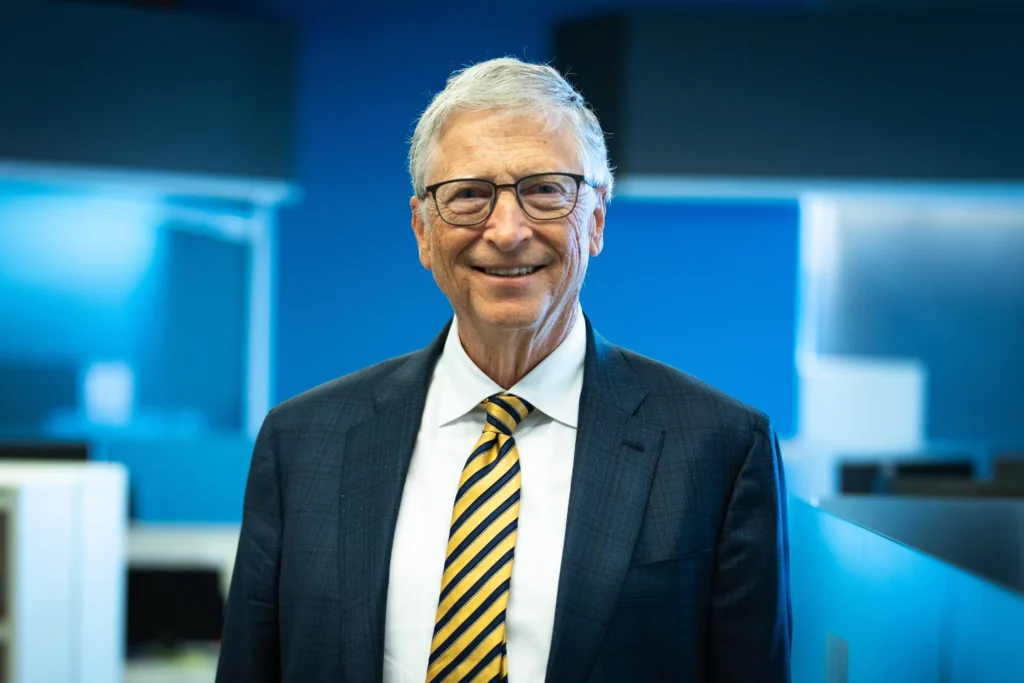When you hear the name Bill Gates, the first thought might be of a tech visionary or Microsoft founder. However, Gates has become a monumental figure in global health, influencing international policies, initiatives, and funding on an unprecedented scale. While not a physician, his philanthropic efforts through the Bill and Melinda Gates Foundation have made him a central player in shaping health outcomes worldwide. This influence often raises a fascinating question: Who Is the Most Powerful Doctor in the World?
In this article, we’ll explore how Gates’s contributions to global health have earned him this unique distinction and examine the controversies, achievements, and long-term implications of his involvement.
Who Is the Most Powerful Doctor in the World?
The term “powerful doctor” doesn’t solely refer to medical expertise—it encompasses influence, leadership, and global impact. The role of shaping healthcare policies, advancing medical research, and addressing global health crises often extends beyond traditional boundaries. One name that consistently enters this discussion is Bill Gates, a philanthropist whose work in global health through the Bill and Melinda Gates Foundation rivals the impact of any medical professional.
But is he the “most powerful doctor”? Let’s explore the contenders, their influence, and the complexities surrounding this title.
The Criteria for Being a Powerful Doctor
To be deemed “the most powerful doctor,” one must excel in several areas:
- Leadership in Health Policy: Steering global initiatives and influencing decisions at the highest levels.
- Funding and Resource Allocation: Channeling substantial resources to critical health areas.
- Innovative Impact: Driving groundbreaking medical research or interventions.
- Global Recognition: Commanding respect and influence across borders.
Bill Gates: A Philanthropic Force in Global Health
While not a doctor, Bill Gates’s contributions through the Bill and Melinda Gates Foundation make him a central figure in discussions about global health power.
Massive Funding Contributions
The Gates Foundation has donated over $2.4 billion to WHO alone, focusing on eradicating diseases like polio, malaria, and tuberculosis. It is one of WHO’s largest donors, accounting for a significant portion of its budget.
Shaping Global Health Agendas
Gates’s influence extends beyond financial contributions:
- Prioritizing disease eradication efforts like polio.
- Funding vaccine development and equitable distribution.
- Convening stakeholders to align on global health priorities.
Challenges and Criticism
Despite his achievements, critics argue that Gates’s priorities may overshadow other critical health issues. The heavy focus on polio, for instance, has raised concerns about underfunding broader health systems.
Dr. Tedros Adhanom Ghebreyesus: The Face of Global Health Governance
As the Director-General of WHO, Dr. Tedros wields unparalleled influence in global health policymaking.
Key Achievements
- Leading WHO’s response to the COVID-19 pandemic.
- Advocating for vaccine equity through the COVAX initiative.
- Promoting disease eradication and health systems strengthening.
Impact and Challenges
Dr. Tedros’s decisions shape global health initiatives affecting billions. However, balancing WHO’s independence while managing influential donors like the Gates Foundation is an ongoing challenge.
Other Influential Figures in Global Health
Dr. Anthony Fauci
An immunologist with decades of experience, Dr. Fauci’s leadership during the COVID-19 pandemic made him a household name. His role in infectious disease research has saved countless lives.
Dr. Atul Gawande
Known for his thought leadership in global surgery and public health, Dr. Gawande has transformed healthcare delivery through his writings and initiatives.
Dr. Devi Shetty
A cardiac surgeon from India, Dr. Shetty revolutionized healthcare by making complex surgeries affordable for the masses.
The Role of WHO and Private Foundations
WHO’s partnership with private foundations like the Gates Foundation is crucial for addressing funding gaps. However, ensuring equitable representation of member states in decision-making is essential to prevent over-reliance on private donors.
How to Balance Influence and Equity in Global Health
While individuals like Gates and Dr. Tedros drive significant progress, maintaining a balance between private influence and public health priorities is vital. Transparency, collaboration, and inclusivity must guide global health governance.
Conclusion
Bill Gates’s role in global health exemplifies the profound impact of philanthropy. While not a medical doctor, his contributions rival—and often surpass—those of traditional health leaders.
However, the question of “Who is the most powerful doctor in the world?” is nuanced. Figures like Dr. Tedros and Dr. Fauci highlight the importance of governance and expertise. Ultimately, the most powerful doctor isn’t just defined by their title but by their ability to transform global health outcomes.
FAQs
Who is the most powerful doctor in the world?
Bill Gates, due to his philanthropic impact, and Dr. Tedros Adhanom Ghebreyesus, as WHO’s leader, are both contenders.
Why is Bill Gates considered powerful in global health?
Gates’s contributions through the Gates Foundation have significantly shaped global health initiatives and funding priorities.
What criticisms does Bill Gates face in global health?
Critics argue that Gates’s funding priorities might overshadow broader health needs, raising concerns about influence.
Who leads WHO?
Dr. Tedros Adhanom Ghebreyesus is the current Director-General, steering global health governance.
How does WHO ensure independence from private donors?
WHO relies on collective decision-making by its 194 member states, ensuring transparency and balanced influence.


